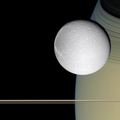
“Defining your moral standards serves as an ethical compass that prevents you from straying off course when the winds of temptation begin howling around your ship of life.”
–Robert J. Ringer
A very interesting class I’m taking this term is Ethics and Moral Development. Understand that I think of myself as an ethical person. Yet to be perfectly honest about it, if you were to press me as to why, I’d probably give you a blank stare. Prior to entering into federal service, I had no formal academic courses or training in ethics. Everything I learned about ethics was environmental: through family and friends, through my long childhood association with the Boy Scouts, and through my academic background in the sciences. Now in federal service, I get the annual ethics refresher that all us government employees get, plus the special briefing related to ethics and the procurement process whenever I kick off a new procurement strategy team. That’s about it for any “ethics training” I’ve received so far. That is why I’m finding this class so insightful, and why I’m choosing to write about it today.
I’m pleased to say that ethics is a matter taken seriously in the federal workplace and at NASA. Because huge sums of money are involved in the role in which I serve – on the order of $200 million annually for NASA’s Mission Control-Houston, astronaut training facilities, mission planning systems, and mission operations “plan/train/fly” services – the confidence that the public has in a part of NASA could be at stake should any questions of integrity arise with my work. I view ethics and moral behavior as a key means of instilling confidence in the American taxpayers that we are faithful stewards of their tax dollars.
As for the class, we’ve explored several topics on ethics so far with more to come. One of the first is relativism, which has its roots in, “When in Rome, do as the Romans do,” and “Who can say whose morals are right?” I consider myself as highly adaptable and tolerant, and quickly identified with the characteristics of relativism as described. However, that was an intentional trap: relativism is inherently contradictory (although some have attempted to resolve the contradictions – see the Wikipedia article on relativism). What I learned is that tolerance as a value is not to be confused with relativism as a means, and I think that is an important lesson.
We’ve also explored utilitarianism – which is weighing societal benefits versus societal costs, a form of the value equation about which I’ve written previously, rights and duties – which gets into the political supercharged topic of negative rights versus positive rights, and Kant’s categorical imperative as a basis for why moral rights exist in the first place. Along the way, we’ve explored case studies in ethics, such as the Arthur Andersen’s dual role at Enron, slavery in the chocolate industry, the Ford Pinto debacle, and Unocal in Burma. In one sense, it is quite easy to see the ethical problems with the advantage of hindsight in each of these cases – each are rather clear-cut to me. The challenge I see is different when the situation is at hand – is it necessarily as clear cut when one is “in the middle of it”, or the situation deals with something close to the heart, such as ethics in human spaceflight.
With that, I’m curious to hear from you. What ethical dilemmas do you see involving human spaceflight? It could be something that human spaceflight is doing specifically, or the way it is conducting business, or something it is not doing that it should be doing based on ethical standards that you hold. It could be a question you have or a position you hold, or something you’d like to get off your mind.
Fire away!
Text © 2012 Joe Williams. All rights reserved
Photo via iStockphoto

You must be logged in to post a comment.